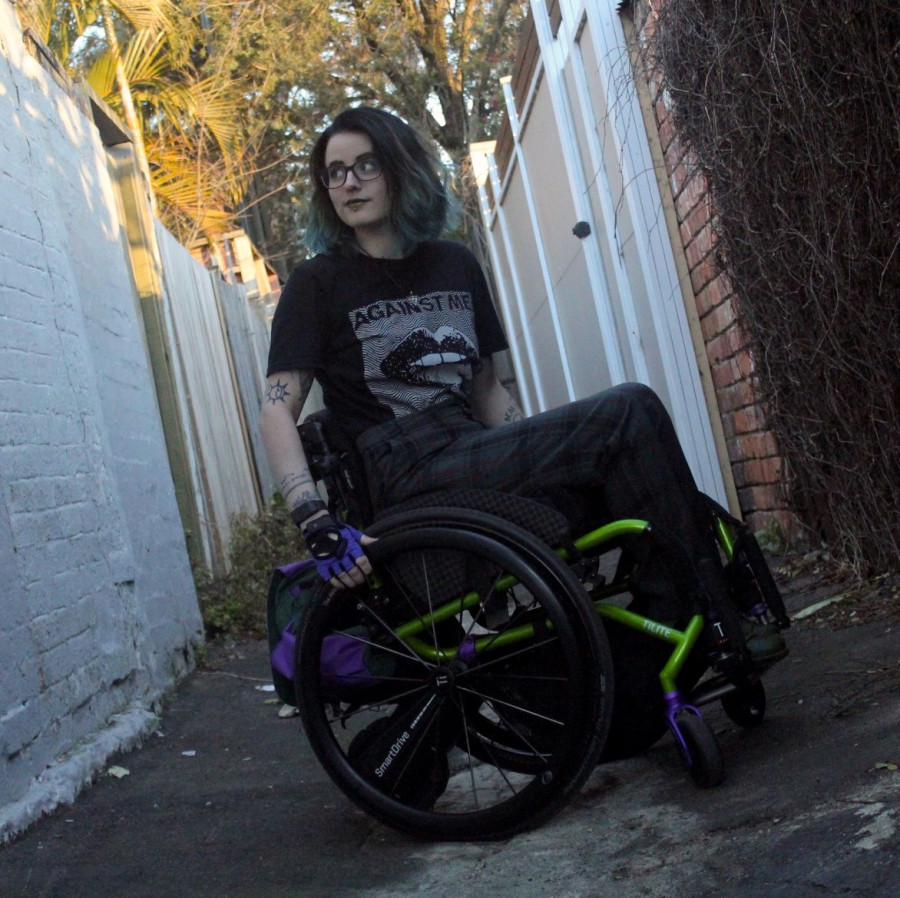
Robin M. Eames is a queercrip writer, artist, and historian living on Gadigal land (Sydney, Australia). They are currently working on a PhD in History at the University of Sydney. This week Robin discusses current and past representations of disability in literature and general society.
How did you discover your autistic identity?
On some level I feel like I’ve always known, but I was in denial about it for a very long time. I had been taught to suppress and circumvent my autistic traits for so long that I couldn’t bear to admit that they were a part of me, even though it meant going without supports and accommodation that I badly needed. I was only formally diagnosed as an adult. I don’t really think of my medical diagnosis as the point where I discovered my autistic identity, though; for that I credit a very dear autistic friend who gave me the space I needed to come to terms with it for myself, without ever trying to push me into something I wasn’t ready for.
What are some of the most common (and/or enraging) stereotypes you encounter on a daily basis as an autistic, genderqueer wheelchair user? Where/when do you feel free of these stereotypes?
I suppose the most obvious harmful stereotype is the idea that those identity factors mean that my life is lesser, or that my quality of life is inherently lower. It’s difficult to get away from these ideas because they are so pervasive, but finding connection and community among other trans crips has helped a lot. Poetry creates wonderful opportunities for unravelling stigma and speaking back against it.
Do you use disabled characters in your own writing? In what ways do writers tokenize disabled people in their writings?
Most of what I write at the moment is poetry, and all of my poetry is infused with disability in some way or another. I do write about disabled characters because I want the literary world to be as populated with disabled people as the material world is, and I want disabled readers to have access to stories that reflect their lives. Often the only disabled characters we are given are villains or tragic waifs, and there’s so much more to our communities than that.
In your opinion, what are some well-written examples of stories (or writers) that include disabled characters in the right ways?
I had to think about this one for a while because so much of what’s out there is truly dreadful, and I mostly read poetry and nonfiction these days. I think the question of the ‘right’ kinds of representation is mainly an issue of the dearth of good rep and the overwhelming quantity of harmful rep.
Most of the disabled writers I admire are poets or memoirists. Off the top of my head, the first ones that come to mind are Nancy Mairs, Audre Lorde, Lucia Perillo, Khairani Barokka, Stephen Kuusisto, Jim Ferris, Andy Jackson, Carly Findlay, Leah Lakshmi Piepzna-Samarasinha, Johanna Hedva, Eli Clare, Jillian Weise, Petra Kuppers, Gayle Kennedy, Qwo-Li Driskill, Kay Ulanday Barrett, Raymond Antrobus, and Quin Eli.
What are some promising steps towards greater accessibility you’ve seen in your community (if any)?
There’s a lot of lip service, but there’s some good change happening too. More literary and queer events are being Auslan [Australian sign language] interpreted, and more of them are putting up venue access info for their events, or asking for access requirements in event registration.
Your bio reads that you are currently working on a PhD, studying madness and trans pathologisation in late nineteenth–early twentieth century Australia. What made you interested in that particular historical period?
The period between the late nineteenth and early twentieth centuries was one of extraordinarily rapid change on an unprecedented scale. So many modern inventions and ideologies trace their origins to this point – psychiatry, sexology, electric light, pulp fiction, communism, abolition, eugenics. I keep returning to this time period because it had such a profound impact on our current conceptions of sexuality, gender, and disability.
Can you expand on what you wrote in your recent article Finding Crip Lit Community: “If they [abled people] could only know the kinds of stories we tell to each other, they might understand why I keep my edges sharp.”
When abled people write about disability, it tends to revolve around deficit, detriment, cure, inspiration, and tragedy. Disability appears as a metaphor for everything negative. Most of these stories are too afraid of us to really get close to us. There is value in tragedy, but when it’s the only kind of story that gets told, it’s both exhausting and dangerous. When disabled people write about disability, we often invoke radically different possibilities, and ones that I am far more interested in exploring: hope, survival, resistance, ratbaggery, liberation, solidarity, power, punk rock.
